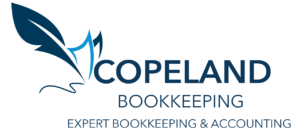
Introduction
When starting your own business and filing the paperwork, you often wonder whether or not you are doing the right thing and setting it up correctly. Choosing the right business entity type is an important decision, because it determines your liability, how much you pay in taxes, and how you run the business in general. In this article, we’ll dive into what entity type will suit your new business best.
Breakdown of Business Entities Available:
1. Sole Proprietorship
A sole proprietorship is a type of business structure owned and operated by one individual. It’s the simplest and most common form of business ownership. In most circumstances, setting up a sole proprietorship is the best option for your new business because it allows you to get started right away on your business without having to worry about a ton of extra paperwork. Better yet – in many cases you don’t even have to file anything at all. Here are the key characteristics of a sole proprietorship:
Ownership and Control: The owner has complete control over all business decisions and is solely responsible for the operation of the business.
Taxes: The business itself isn’t taxed separately. Instead, all profits and losses are reported on the owner’s personal income tax return. This makes taxes relatively straightforward, as the income from the business is combined with the owner’s total income for tax purposes.
Liability: The owner is personally liable for all business debts and obligations. This means that personal assets (like a home or car) could be at risk if the business faces financial issues or legal claims.
Ease of Formation: Forming a sole proprietorship is easy and inexpensive, often requiring just a business license to operate legally.
Setting Up a Sole Proprietorship:
Setting up a sole proprietorship is pretty straightforward. If your individual name is in the name of the business, you do not have to file anything and are ready to go. To use a business name other than your own, you’ll need to register the DBA with your county clerk’s office. Also, contact your city or county government office to check if a local business license is needed.
2. LLC
An LLC is a flexible, popular business structure that combines elements of both corporations and sole proprietorships. It works well for smaller and medium sized businesses because it offers liability protection and has fewer formal requirements than a corporation. It’s best to switch from a sole proprietorship to an LLC when your business starts to involve risks that could lead to lawsuits (e.g., working directly with clients, handling equipment, providing professional services, etc.). Here are the key features of an LLC:
Limited Liability Protection:
- Owners (called members) are not personally responsible for the company’s debts or liabilities. This means that personal assets (e.g., home, car) are generally protected from lawsuits or business debts.
Fewer Formal Requirements:
- Unlike corporations, LLCs generally have fewer compliance requirements. For example, there are no requirements for a board of directors or regular board meetings. However, it’s best to have an operating agreement, which outlines the management structure and rules.
Setting Up an LLC
When setting up your LLC, make sure you avoid any business setup services or LLC filing services. Most of these companies charge fees that are completely unnecessary. Setting up an LLC correctly is generally quite simple and can be done online yourself. In South Carolina, go to businessfilings.sc.gov and file your LLC there.
- You will need to create an EIN number on the IRS website.
- In some counties and cities, you need to register for a business license.
- It is best practice to have a separate bank account for your LLC to have full liability protection.
Bad Entity Types for Starting a New Business
1. S-Corporation
An S-Corp is a type of tax shelter that allows businesses with growing revenue to avoid certain taxes. If your business is registered as an S-Corp, instead of taking all the profits, you can pay yourself a limited salary, leaving the remaining as “distributions” instead, which are not subject to FICA taxes. This works best with businesses that are making six or more figures in revenue. However, for you as a new business owner, filing an S-Corp will bring unnecessary complications, and trouble into starting your new business. When you are making under six figures in revenue, there are many different tax strategies you and your company can use to lower and even eliminate any taxes you need to pay – which can be a lot easier and more effective than opening an S-Corp.
2. C-Corporation
The C-Corp is a business entity vehicle designed mainly for bigger businesses because it allows companies to keep retained earnings, have unlimited shareholders, and go public with a stock and an IPO. However, C-Corps are also subject to double taxation, strict restrictions, and ownership inflexibility. As a new business owner, in most cases, opening a C Corporation will provide virtually no benefits, and come with lots of drawbacks that will harm your business. The process of opening a C Corporation is also very long and complex, hindering how long it will take your business to get up and running.
Corporation entities are mainly used by larger and more advanced companies to avoid taxes and open up more opportunities for growth. For example, S-Corps and C-Corps are also preferred by shareholders and investors a lot more than LLCs and Sole Proprietors. When you are at the very beginning of starting your business, you need to open a sole proprietorship because it allows you to have the most flexibility with your decision making, and it allows you to get started right away without any complications
Traps To Avoid: LLC Filing Companies, Business Setup Services, and New Business Consulting Firms
One of the most important principles when starting a business is to get started right away. Many new entrepreneurs make the mistake of getting distracted and entangled in various details and specifics that are not essential to starting the business. When setting up your new business structure, avoid LLC filing services, business setup services, and similar companies that offer to “do it all for you”. Most of these companies will try to charge you a hefty fee – for simple actions you can do at home from your laptop. Setting up an LLC or DBA is generally very simple, 100% online, and does not require using any external third-party services.
Key Takeaways
When starting a new business, the right entity type can make all the difference. For most entrepreneurs, beginning as a sole proprietorship or LLC allows you to operate quickly while keeping things simple and manageable. As your business grows, you can consider transitioning to an S-Corp or C-Corp if the benefits of these structures align with your revenue and goals. By making informed choices now, you can set up a solid foundation and avoid unnecessary complications that could hold back your success.
Disclaimer:
The information provided in this article is for general informational purposes only and should not be construed as legal, financial, or tax advice. It is always recommended that you consult with a qualified attorney or accountant before making decisions related to business entity formation or any other legal or financial matters.
